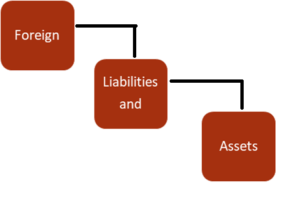Provisions:
- Section 56 of the Companies Act 2013
- Rule 11 of Companies (Share Capital & Debentures) Rule 2014
- Provisions given in model articles of association given in TABLE ‘F’ of Schedule I
What is Share Transfer?
A share transfer is a process of transferring existing shares from one person to another; either by sale or gift. Transfer of shares means the voluntary handing over of the rights and possibly, the duties of a member (as represented in a share of the company) from a shareholder who wishes to not be a member in the company any more to a person who wishes of becoming a member. Thus, shares in a company are transferable like any other movable property in the absence of any expressed restrictions under the articles of the company.
Legal Provision:
Section 56-59 of the Companies Act 2013 discussed the detailed provisions regarding the transfer of shares of a company.
Section 56 (1) A Company shall not register a transfer of securities of the company, or interest of a member in the company in the case of a company having no share capital, other than a transfer between persons both of whose names are entered as holders of a beneficial interest in the records of a depository, unless a proper instrument of transfer, in such form as may be prescribed, duly stamped, dated and executed by or on behalf of the transferor and the transferee and specifying the name, address, and occupation, if any, of the transferee has been delivered to the company by the transferor or the transferee within a period of sixty days from the date of execution, along with certificate relating to the securities, or if no such certificate is in existence, along with the letter of allotment of securities.
Procedure for transfer of share in a Private Company
Generally, the article contains detailed provisions regards the procedure for the transfer of shares. Usually following steps shall be followed by a private company to give effect to the transfer of shares:-
- Transferor should give a notice in writing for his intention to transfer his share to the company
- The company in turn should notify to other members as regards the availability of shares and the price at which such share would be available to them
- Such price is generally determined by the directors or the auditors of the company
- The company should also intimate to the members, the time limit within which they should communicate their option to purchase shares on transfer
- If none of the members comes forward to purchase shares can be transferred to an outsider and the company will have no option, other than to accept the transfer
- Get the Share transfer deed in form SH 4 duly executed both by the transferor and the transferee
- The transfer deed should bear stamps accordingly to the Indian Stamp Act and Stamp duty notification in force in the State concerned. The present stamp duty rate for transfer of share is 25 paisa for every one hundred rupees of the value of the share or part thereof. That means for shares valued of Rs. 1050, the stamp duty will be Rs 2.75
- Check that the stamp affixed on the transfer deed is cancelled at the time of or before the signing of the transfer deed
- Signatures of both the parties must be witnessed by a person giving his signature, name and address
- The Share transfer deed should be deposited with the company within 60 days from the date of such execution by or on behalf of both transferor and transferee with attach relevant share certificate or allotment letter.
- After the receipt of share transfer deed , board shall consider the same. If the documentation of transfer of shares is in order, board shall register the transfer by passing a resolution.
Procedure for Transfer of share in a Public Company
Section 58 (2) of the Companies Act 2013, the securities or other interest of any member of a public company shall be freely transferable.
- Get the Share transfer deed in form SH-4 duly executed both by the transferor and the transferee.
- The transfer deed should bear stamps according to the Indian Stamp Act and Stamp Duty Notification in force in the State concerned. The present rate of transfer of shares is 25 Paise for every one hundred rupees of the value of shares or part thereof. Do not forget to cancel the stamps affixed at the time or before the signing of the transfer deed.
- The signatures of the transferor and the transferee in the share transfer deed must be witnessed by a person giving his signature, name and address.
- Attach the relevant share certificate or allotment letter with the share transfer deed and deliver the same to the company. The share transfer deed should be deposited with the company within sixty (60) days from the date of such execution by or on behalf of the transferor and by or on behalf of the transferee.
- After receipt of share transfer deed, board shall consider the same. If the documentation for transfer of share is in order, board shall register the transfer by passing a resolution.
Persons involved in the transfer
- Subscribers to the memorandum
- Legal Representative, in case of deceased
- Transferor
- Transferee
- Company (Whether listed/ Unlisted
Valuation of shares
As per the pre-emption clause in the Articles, shares are to be offered to other members at a price certified by the directors or auditors. The correctness of such valuation cannot be questioned by the Courts unless there is evidence of inaccurate valuation.
If the valuer has in fact acted negligently and failed to account for all the necessary factors for arriving at the value of shares, the transferor has the right to institute legal proceedings against such valuer for any damages caused due to improper valuation of shares. Ordinarily, the Tribunal does not interfere with the valuation made by experts. Therefore, if the valuation is challenged then there must be sufficient evidence in support to show that the valuation is improper
Legal Validity of Restriction on Transfer of shares of Public Companies
As specified under Section 58(2) of the Act of 2013, the shares of a public company are freely transferable. However, it is also stated that in the proviso to Section 58(2) “any contract or arrangement between two or more persons in respect of the transfer of securities shall be enforceable as a contract.”
The above-mentioned provisions of the Company Act 13 appear to be an attempt to codify the principles laid down in an important judgment of the Bombay High Court in the case of MESSERS HOLDING LIMITED V. SHYAM MADANMOHAN RUIA AND OTHERS, [2010]104SCL293 (Bom), in this case, it stated that:
An agreement by a particular shareholder or between two shareholders relating only to their shares is a consensual arrangement entered into by them, in the exercise of their right of free transferability and it consequently imposes no restriction on transferability…..The concept of free transferability of shares of a public company is not affected in any manner if the shareholder expresses his willingness to sell the shares held by him to another party with the right of first purchase at the prevailing market price at the relevant time. So long as the member agrees to pay such prevailing market price and abides by other stipulations in the Act, Rules, and Articles of Association, there can be no violation. For the sake of free transferability, both the seller and purchaser must agree to the terms of sale.
In another case of VODAFONE INTERNATIONAL HOLDING B.V Vs. UNION OF INDIA (2012) 6SCC613, the Court has taken the view that law can restrict freedom of contract only in cases where it is for some good of the community. The Companies Act or other legislations do not explicitly or impliedly forbid shareholders of a company to enter into agreements as to how they should exercise voting rights attached to their shares.
All views expressed on this site are my own and do not represent the opinions of any entity whatsoever with which I have been, am now, and will be affiliated.
The content of this article is intended to provide a general guide to the subject matter. Specialist advice should be sought about your specific circumstances.




